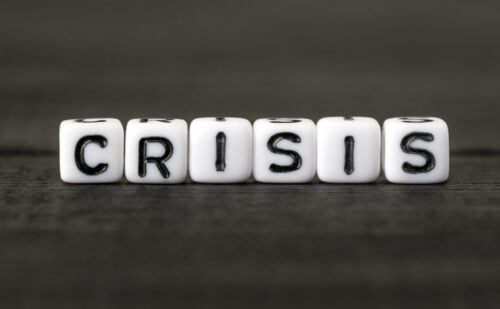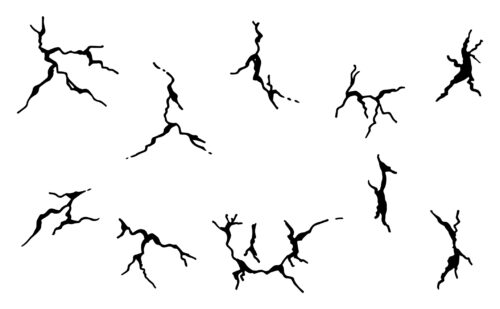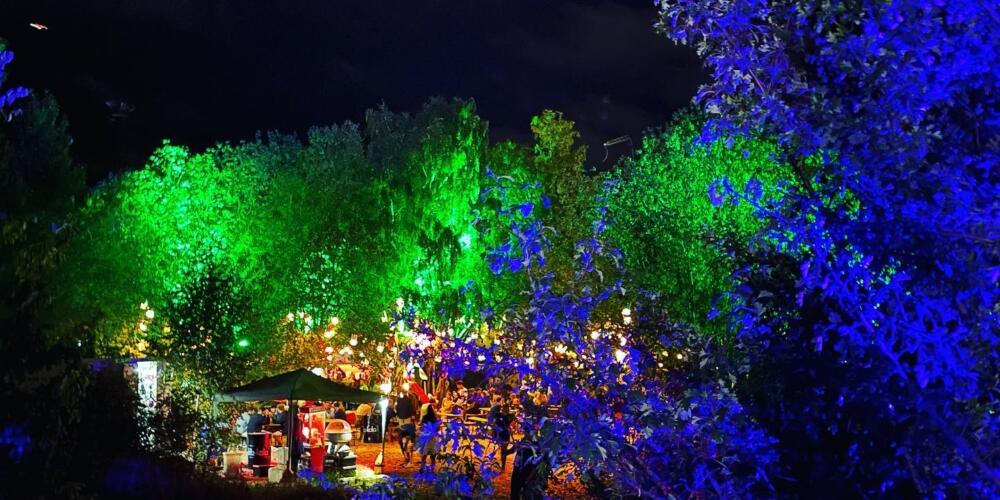
Project of the Month: FestiVersities
Posted: 24 October, 2022
Project name
European Music Festivals, Public Spaces, and Cultural Diversity [FestiVersities]
Website: https://festiversities.com
Twitter: @FestiVersities
Project team
Prof Ian Woodward, University of Southern Denmark, PL
Associate Professor Jo Haynes, University of Bristol, PI
Dr Karolina Golemo, Jagiellonian University, PI
Dr Aileen Dillane, Limerick University, PI
Prof Pauwke Berkers, Erasmus University Rotterdam, PI
Dr Magda Mogilnicka, University of Bristol, Postdoctoral Researcher
Dr Sarah Raine, Limerick University, Postdoctoral Researcher
Marta Kupis, Jagiellonian University, PhD Researcher
Britt Swartjes, Erasmus University Rotterdam, PhD Researcher
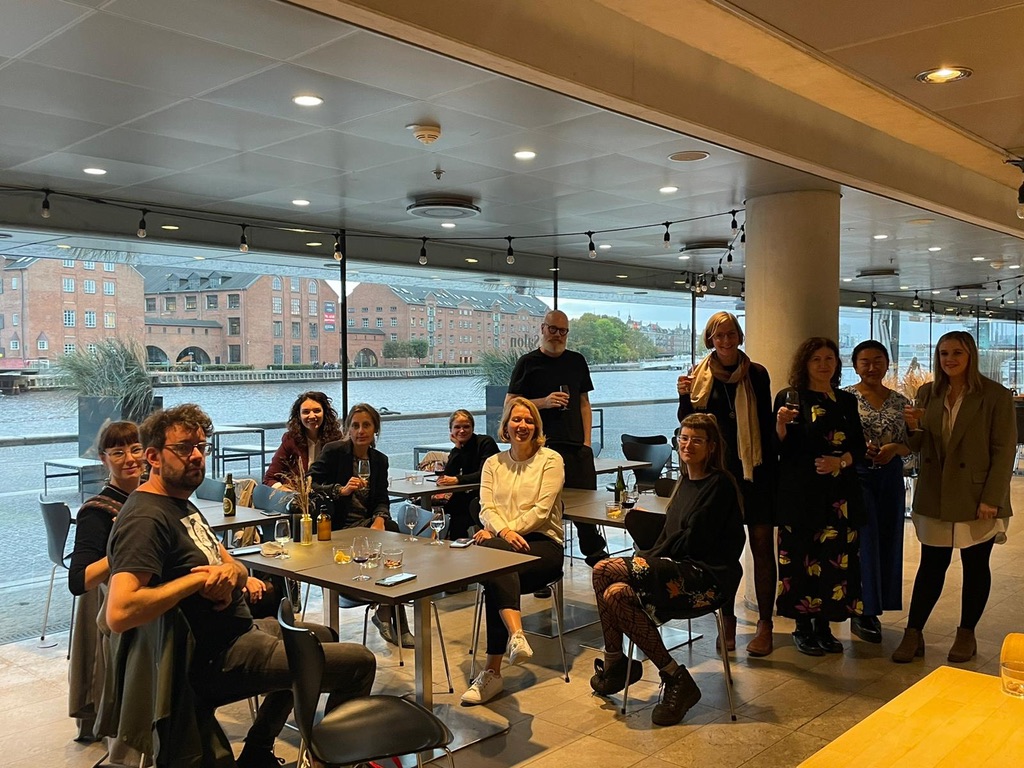
The team and guests relaxing after the final symposium event Remaking Culture and Music Spaces, Den Sorte Diamant, 07 October 2022
Describe your project in 1-2 sentences
Music festivals have the potential to connect people and foster tolerance, but they may also reproduce inequalities and social exclusion. As designed, this is a comparative study of music festivals as potential public spaces affording encounters with social diversities. As it developed, we turned to study new spaces; loss, cultural survival and creativity; and cultural regeneration.
Describe your project development to date
The FestiVersities project’s key contribution centres on researching interrelated questions about spaces of inclusion, creativity and hybridisation of cultural and spatial forms, and socio-cultural loss and trauma. We frame these elements in the context of the project’s cross-national context, and broader questions of social inclusion in the context of the global pandemic.
Over the last few years we have developed established working partnerships with a total of 15 prominent music festivals in our national settings. Researchers have conducted interviews with festival directors, music bookers, designers, and festival logistics staff. Through summer and the latter half of 2020, the CRP continued interviews, ethnographic research and discussions with festival organisers and undertook interviews with festival audiences where possible. We have analysed and documented the way organisers, audiences and events creatively respond to festival cancellation and make new spaces for social interaction. Additionally, we look to the way festivals are remembered and celebrated, and to how festival organisations deal with threats to their industry.
How did the pandemic impact on the project and how has the project adapted?
COVID-19 has made our study of the construction of and participation in public spaces more interesting and urgent, but also more challenging in terms of having to re-imagine and re-build our project in real pandemic-time. In all, in the context of our ongoing study of music festival spaces, in 2020 the study embraced the theme of re-making inclusive, viable music festival public spaces in the wake of losses caused by the global pandemic. Working collaboratively with our partners, the team’s main challenge has been to understand the coordination, representation and negotiation of cultural diversities in the context of music festival spaces.
Yet, 2020 and to a large degree 2021 are the years COVID-19 cancelled in terms of events, and especially music festivals. The global pandemic has created widespread socio-economic damage, taken lives and businesses, and forced a re-assessment of many aspects of work and homelife. The COVID-19 pandemic is more than a medical and scientific challenge with devastating economic impact. It is a challenge to social participation, personal and community well-being, and the sustainability of cultural infrastructures. In all, it has demanded massive changes to the organization of daily life and required huge personal and community sacrifice and cost. At a personal level, it has not just been the threat of the virus, but the loss of contact with friends, family, and the pleasures of participating freely with fellow citizens in cities and towns.
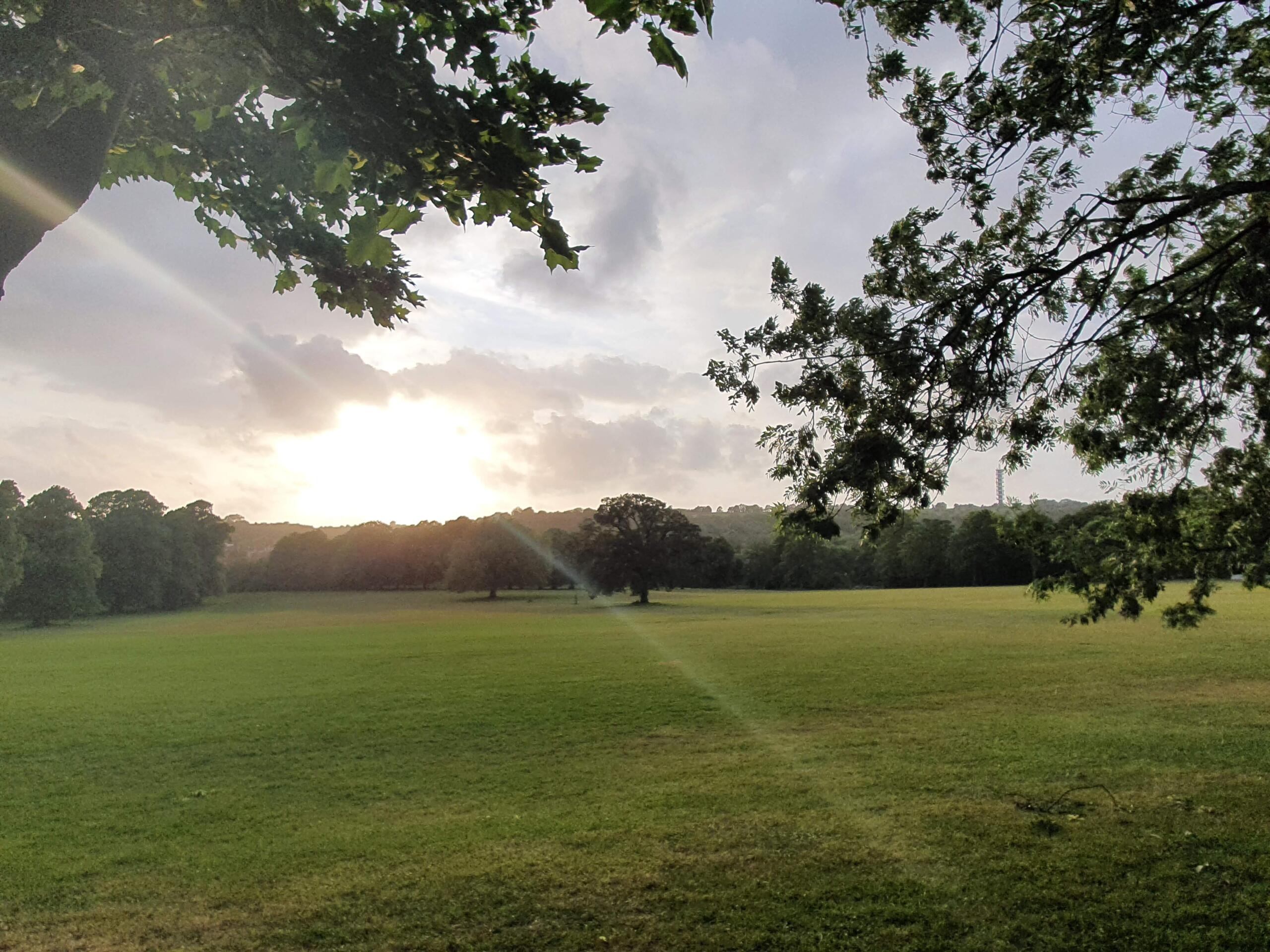
Eastville Park, Bristol, 23 May 2020 – missing Love Saves the Day Festival (Jo Haynes)
Interesting collaborations / partnerships
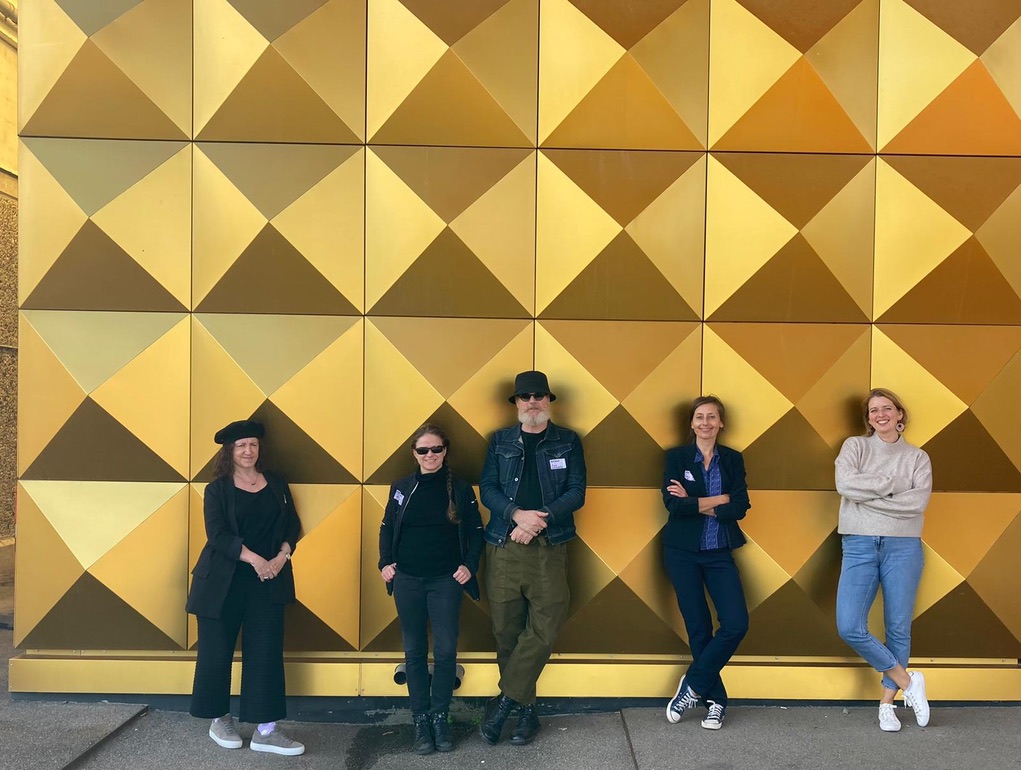
The team soaking up golden vibes before the panel at Grasp Festival
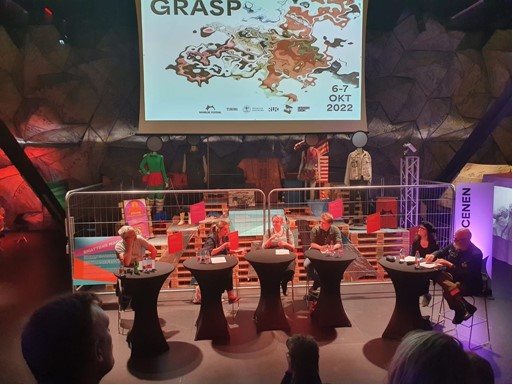
The Grasp Panel, ‘Festival futures and contested free space’, October 6, 2022
Ironically, in the last few years we have profited from using the festival form to reflect on and disseminate our work in festival spaces. In 2021 and 2022 we partnered with GRASP Festival in Roskilde, and also Ragnarock Museum in Roskilde, to disseminate our research more widely, promote some of our important research partners, and develop new potential projects. GRASP Festival is a new offshoot event of Roskilde Festival; an initiative focused on talk, food, art, and music designed to create new spaces of critical, future-oriented conversation about culture. Our panels have included festival organisers from the UK and Denmark, festival workers, and industry partners such as Dansk Live. Our panels have had the titles: ‘Festival futures and contested free space’; ‘Culture and COVID-19: Challenges, innovations, futures; early afternoon’; and ‘Festivals for a greater cause’.
Dancing forest tribe – Karrusel Festival, Copenhagen, August 2022 (Ian Woodward)
Project showcase
We have used blogs, especially in the first years of the project, to reflect on the rapidly altered context of our research sites. The blogs can be accessed here:
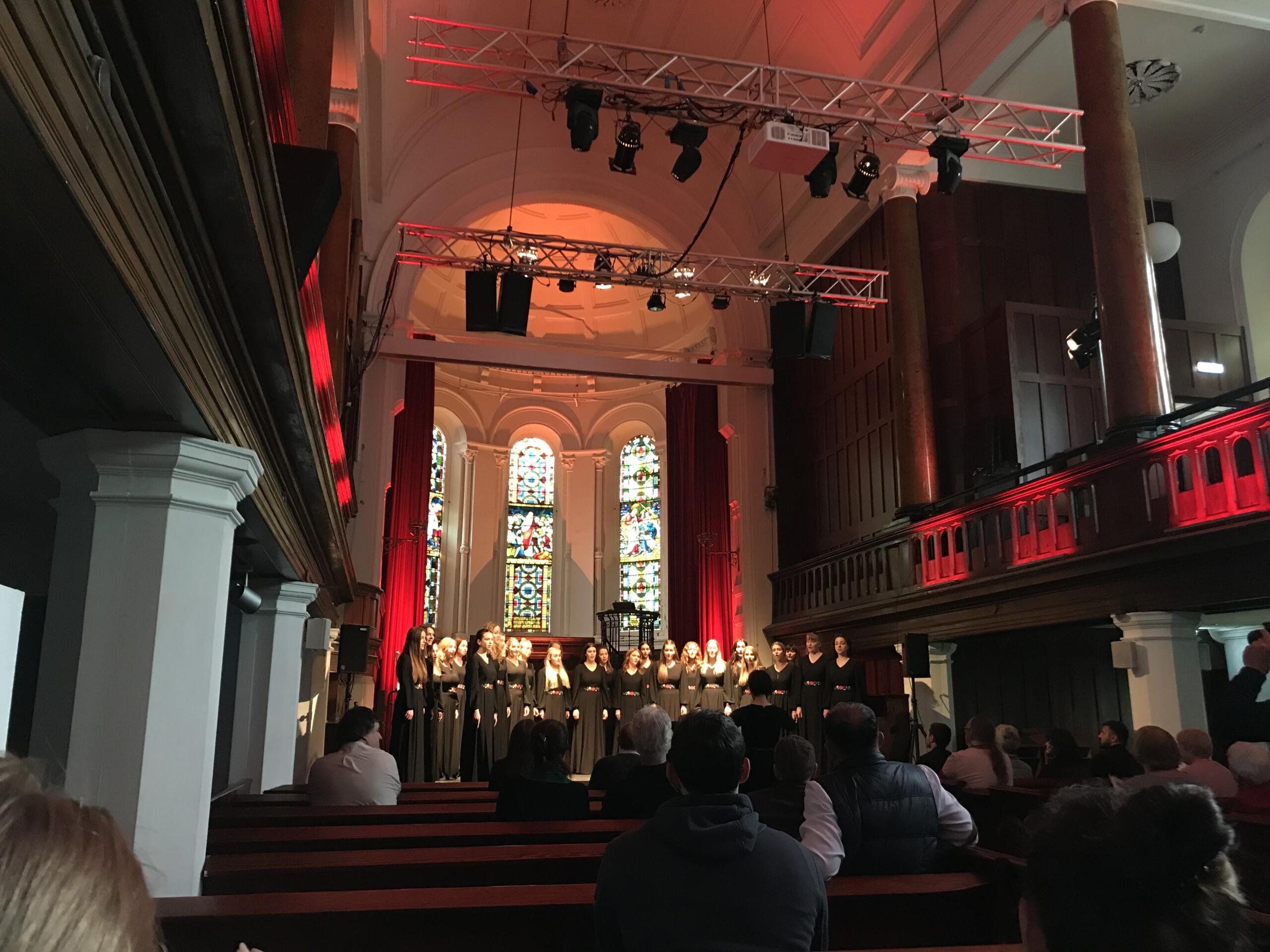
Eller Girls’ Choir from Estonia perform at Cork International Choral Festival in Trisken Art Centre, Cork (April 2022). (Aileen Dillane)
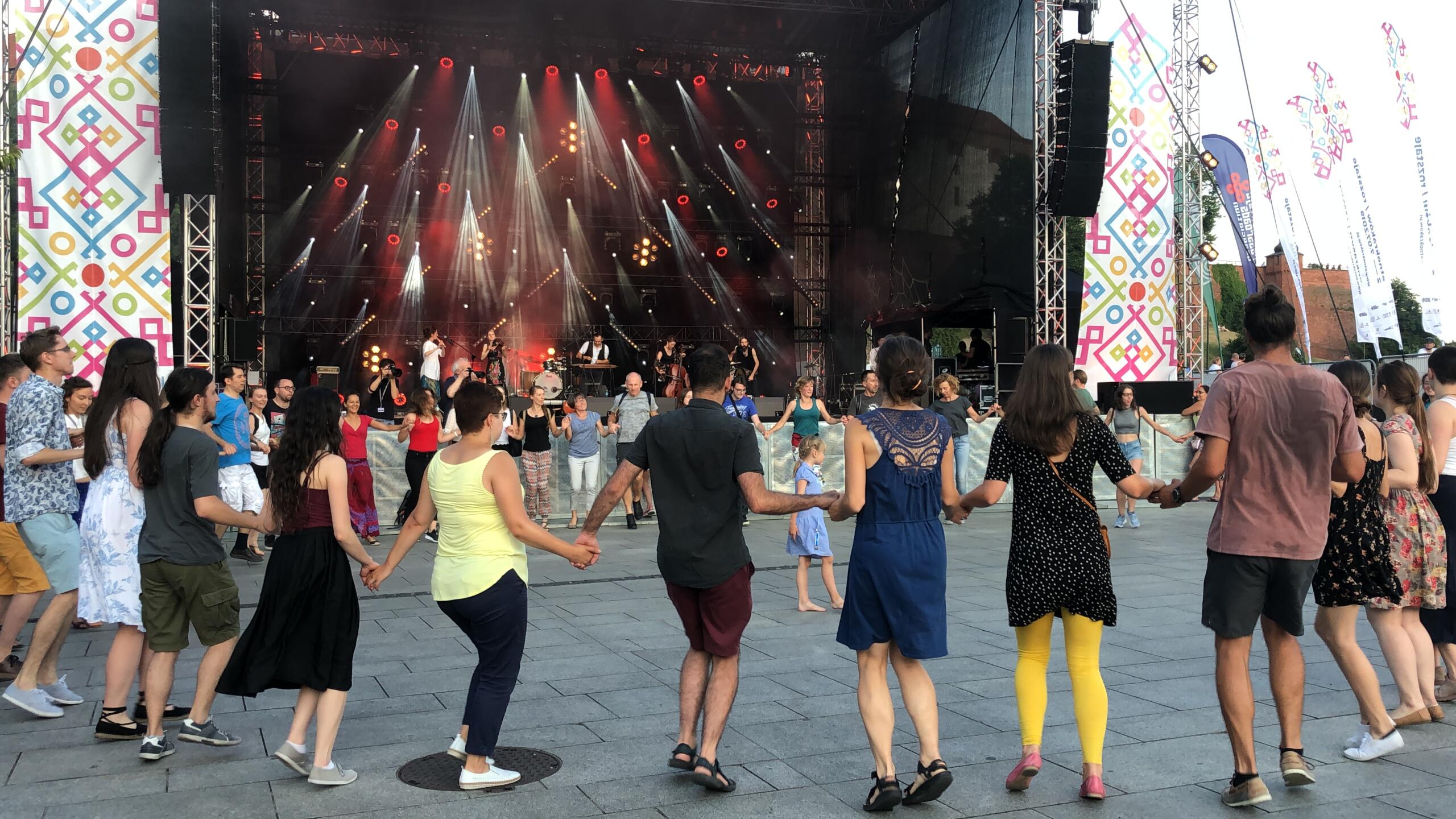
EtnoKraków Festival, edition 2019 in Powiśle. Spontaneous ethno dance by the festival audience. (Karolina Golemo)
Publications
We are very proud of this timely and important intervention in the COVID-19 and post-COVID music and culture landscape. Edited by the PIs, featuring members of the research team and a host of collaborators around the world, Remaking Culture and Music Spaces. Affects, Infrastructures, and Futures is published by Routledge in 2023, and available from next month.
The Polish team have also produced an edited collection that is forthcoming called Spaces of Diversity? Polish Music Festivals in a Changing Society, to be published by Jagiellonian University Press, Krakow. We also have 4 journal articles in peer-reviewed journals, plus chapters in our and other edited collections. There are further plans for peer-review articles as well as 2 research monographs.
In the last year, members of the team have given keynotes to relevant conferences which showcase the project, our findings and approaches.
- Jo Haynes gave a keynote at the ‘What music festivals do’ event, in Canada.
https://www.whatmusicfestivalsdo.ca/schedule-october-14/
- Ian Woodward gave a keynote titled ‘Remaking culture and music spaces. Refiguration and the limits of creation’ to the KISMIF conference in Porto.
https://www.kismifconference.com/ian-woodward/
- Sarah Raine gave a keynote at the Genus conference in Malmo.
https://www.conferencegenus.com/2022
- Ian Woodward gave a keynote on ‘Reconceiving cosmopolitanism’ to the INVENT Culture project conference in Rotterdam
https://inventculture.eu/invent-congress/invent-conference-speakers/
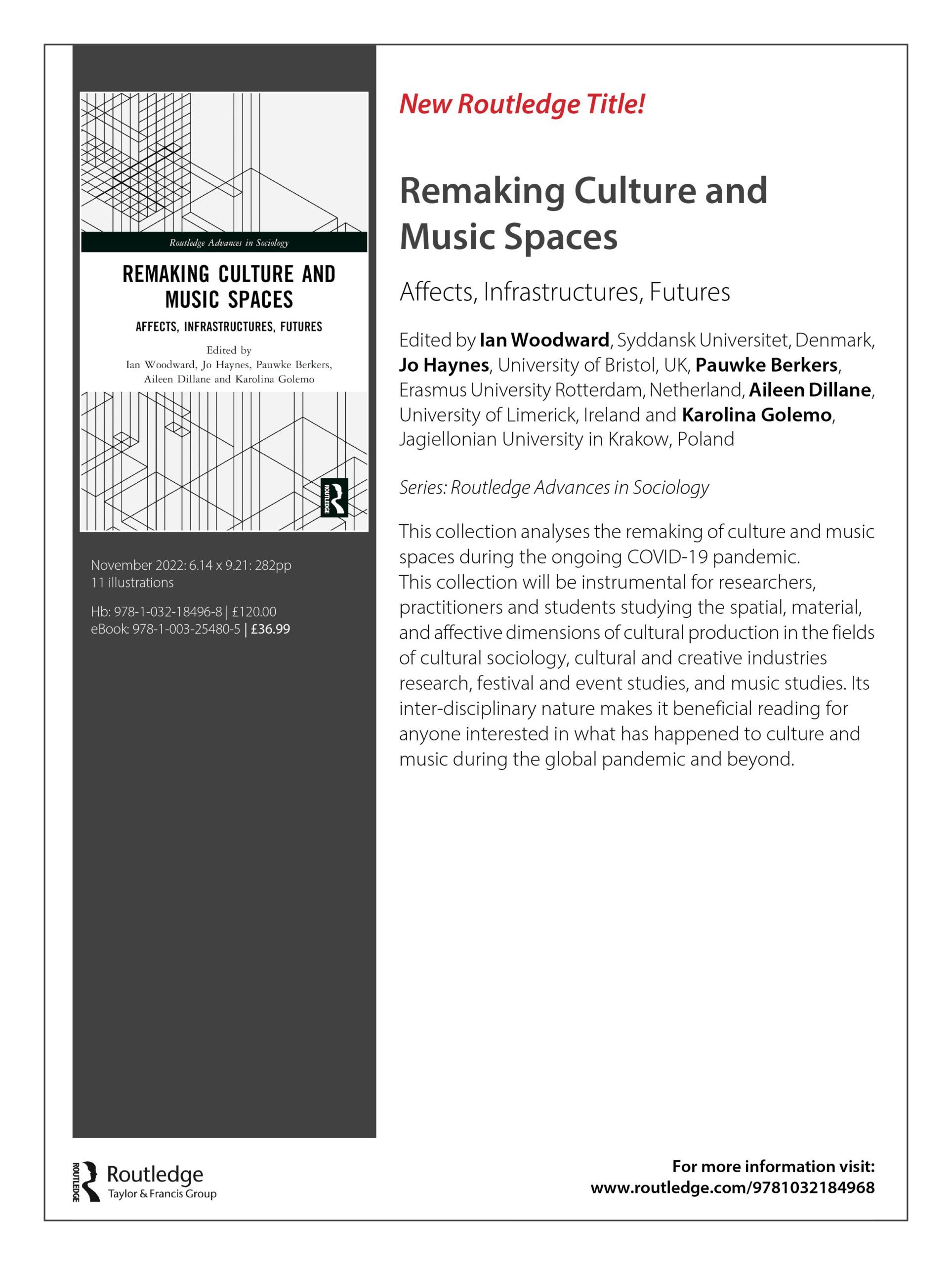
-
-
-
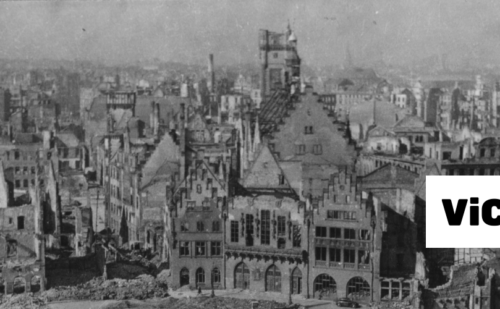
16 November, 2022
Project of the Month: ViCTOR-E
